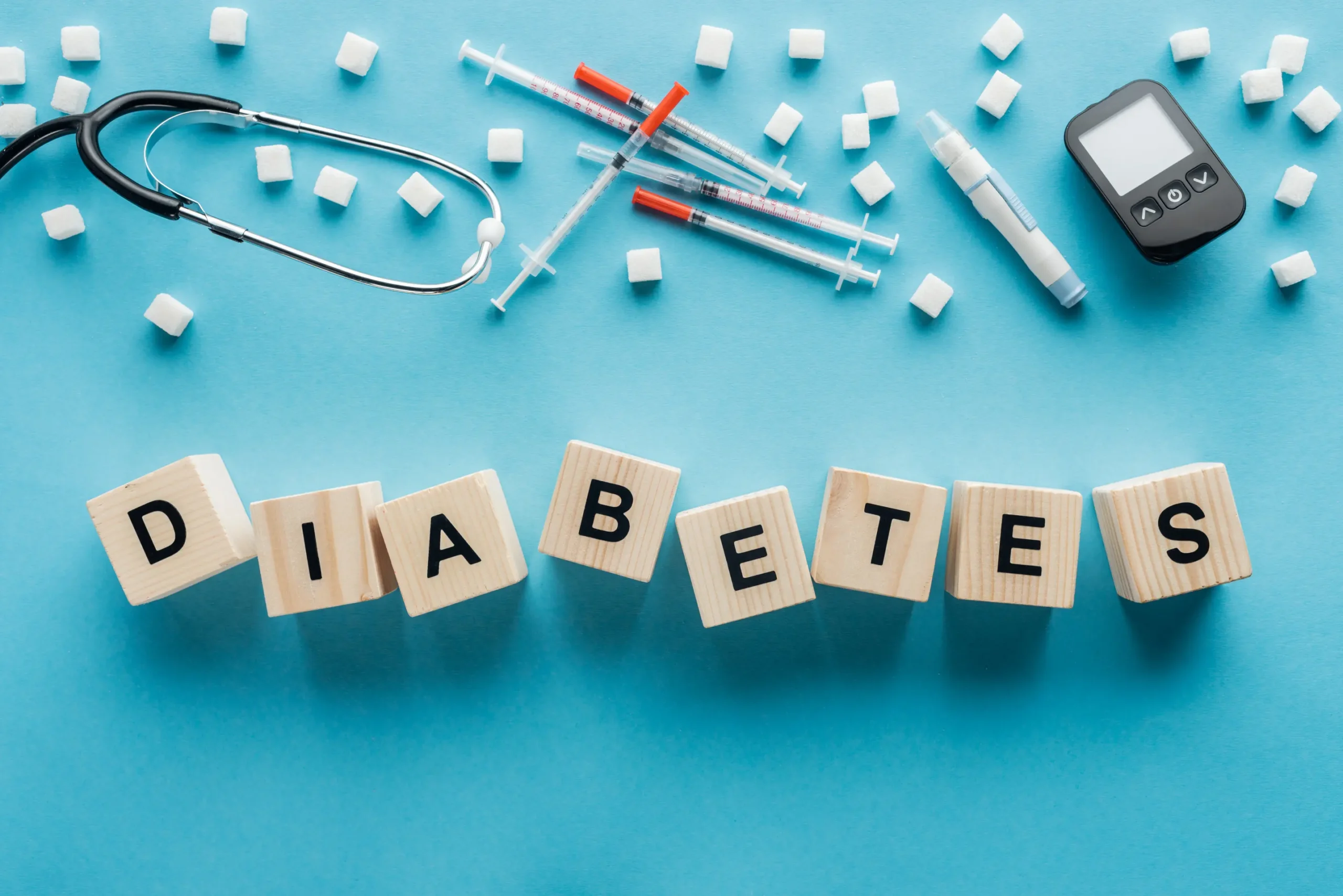Diabetes, often referred to as diabetes mellitus, is a chronic medical condition that affects how body processes glucose, which is the primary source of energy for your cells. Glucose comes from the foods we eat and is processed within our body with the help of hormone called “Insulin”. When a person is suffering from diabetes, there are problems regarding insulin production and effectiveness which cause inappropriate glucose level in blood. The normal fasting blood glucose level for a healthy person is between 70 mg/dL and 100 mg/dL.
Types of diabetes
- Type 1 Diabetes: This type usually develops early in life, often during childhood or adolescence. It occurs when the immune system mistakenly attacks and destroys the insulin-producing cells in the pancreas. People with Type 1 diabetes require daily insulin injections or the use of an insulin pump to survive.
- Type 2 Diabetes: This is the most common form of diabetes and typically develops in adulthood, although it’s increasingly seen in children and adolescents. In Type 2 diabetes, the body either doesn’t produce enough insulin or becomes resistant to its effects. It’s often associated with lifestyle factors such as obesity and physical inactivity, but genetics also play a role. Treatment may involve lifestyle changes, oral medications, and, in some cases, insulin therapy.
- Gestational Diabetes: This type occurs during pregnancy when the body cannot produce enough insulin to meet the increased needs, leading to elevated blood sugar levels. It usually resolves after pregnancy, but women who’ve had gestational diabetes are at higher risk of developing Type 2 diabetes later in life
Diabetes can have serious health consequences if not managed properly. High blood sugar levels over time can lead to complications like heart disease, kidney disease, vision problems, nerve damage, and more.
Foods have a significant impact on diabetes because the types and amounts of foods consume directly affect the blood sugar levels. Managing diet is a crucial aspect of diabetes management, and making informed food choices can help to control blood sugar, maintain a healthy weight, and reduce the risk of diabetes-related complications.
Carbohydrates have the most direct and immediate effect on blood sugar levels because they are broken down into glucose during digestion. It’s important for people with diabetes to manage their carbohydrate intake. This can be done by monitoring the quantity and quality of carbohydrates consumed, such as choosing complex carbohydrates like whole grains, legumes, and vegetables over simple sugars. Foods high in dietary fiber, like whole grains, fruits, vegetables, and legumes, can help stabilize blood sugar levels by slowing the absorption of glucose. They also contribute to a feeling of fullness, which can aid in weight management. Protein-rich foods, such as lean meats, poultry, fish, tofu, and legumes, can be included in a diabetes-friendly diet. Protein can help with satiety and may have a minimal effect on blood sugar levels. Consuming healthy fats, such as those found in avocados, nuts, seeds, and olive oil, is important. These fats can help improve insulin sensitivity and reduce the risk of heart disease, which is a common concern for people with diabetes.
Sugary Foods and Beverages like Soda and sugary soft drinks, Candy, Cookies, cakes, and pastries can cause rapid spikes in blood sugar levels. Highly processed carbohydrates like White bread, White rice, Most commercial breakfast cereals, Regular pasta and Sugary breakfast pastries are not good for diabetes. Foods high in unhealthy fats, especially saturated and trans fats Deep-fried foods like French fries, Deep-fried foods, French fries and Butter and margarine high in trans fats can worsen insulin resistance. Many packaged snacks are also high in sugars, unhealthy fats, and refined carbohydrates. If diabetic patient consume alcohol, it can interfere with blood sugar control and may cause hypoglycemia (low blood sugar) because alcohol affect the blood glucose regulation. Therefore these types of foods should be avoided or limited to control diabetes.
Controlling portion sizes is crucial for managing blood sugar levels and calorie intake. Eating appropriate portion sizes can prevent overeating and help maintain a healthy weight. Spacing meals and snacks throughout the day can help stabilize blood sugar levels. Skipping meals or going too long without eating can lead to fluctuations in blood sugar levels.

